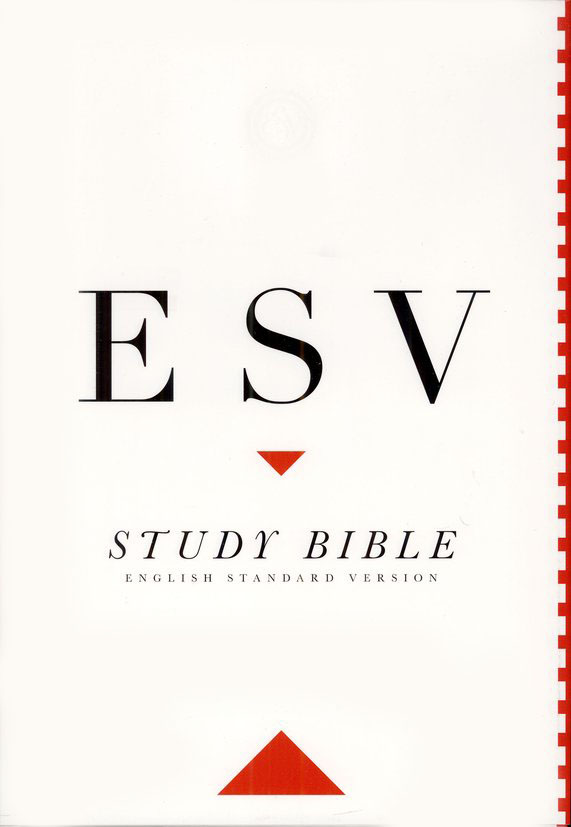The Biggest Bible Study Mistake (And How To Avoid Making It)
Our culture is obsessed with self. Self-love. Self-empowerment. Self-fulfillment. The self-help market is now a multi-billion dollar industry.
Considering this, it’s no surprise our natural inclination is to engage God’s Word with this same self-centered focus.
What does Scripture say about who I am? What does this verse suggest I should do? What does this passage mean to me?
4 Dangers of a Me-First Approach to Bible Study
There isn’t anything inherently wrong with asking these questions. But when we fail to seek answers through the lens of who God is, we only see a distorted view of the full picture. The value of what we discover is limited.
The message of the Bible is the story of redemption, the divine drama of the creation, fall, and restoration of the people of God. Its purpose is to call people to live in faith, love, and holiness, to submit ourselves to his authority, and to align our lives with his purpose and will.
mark strauss
1. Missing the Big Story
When we approach God’s Word with a me-first attitude, we’re often tempted to spend time in books of the Bible that appeal to us while skipping over those that are less familiar or more intimidating.
For example, we may find comfort and inspiration in reading through the Gospels but steer clear of studying the commands in Leviticus.
In his instruction to Timothy, Paul stressed that all Scripture is God-breathed and useful in thoroughly equipping believers for the good works God has planned for us (2 Tim. 3:16-17).
If this is the case, we can’t afford to engage some parts of Scripture while ignoring others.
We gain only a partial glimpse of what any individual snapshot of Scripture is telling us when we aren’t viewing it in light of the bigger picture. And we can’t understand this bigger picture, or metanarrative, of Scripture if we haven’t made the effort to regularly study the Bible in its full scope.
Every page of the 66 canonical books of the Bible points to the Author and Perfecter of our faith. If we truly desire a fuller understanding of who God is, we must earnestly seek Him in the entirety of His Word – not just in the parts we find most interesting or easy to accept.
Did you know?
metanarrative: an overarching story or storyline that gives context, meaning, and purpose; an all-encompassing theme that unites all smaller themes and individual stories; in Biblical terms, often understood as creation, fall, redemption, and restoration
God-First Solution #1:
Resist the temptation to skip over the less familiar and make it a goal to leave no territory uncharted when it comes to God’s Word.
Choose a reading plan that will strategically guide you through all of Scripture. These one-year Bible reading plans from the Bible Recap, the BibleProject, and Skip Heitzig are great places to start.
Begin your Bible time with a curious mind, an open heart, and a prayerful desire for the Holy Spirit to reveal the truth of His Word in light of the Big Story.
One-Year Bible Reading Plan by Tara-Leigh Cobble
This plan takes you chronologically through the Bible in one year’s time (ie, in the order the events actually occurred on the timeline of history). Each day’s reading features a concise yet impactful summary, providing additional context to help you better understand what you just read.
2. Taking Scripture Out Of Context
In our eagerness to apply Scripture to our present-day circumstance, we risk assigning a meaning that was never intended.
While it’s true all Scripture is divinely inspired and continues to serve as the authoritative standard for believers today, any individual text cannot mean something for us now that it didn’t first mean for them then.
We can be quick to forget all biblical texts were first written by a specific author to a particular audience during a specific time in history within a certain cultural setting with a designated purpose.
In our haste, we also fail to consider the literary genre in which a particular passage appears. The type of literature matters greatly when it comes to uncovering an accurate interpretation of the original text.
For example, the guiding principles found in the book of Proverbs were never intended to be divine life promises for believers to claim.
If parents recognized this, Proverbs 22:6 would lose some of its sting when an adult child wrestles with his or her faith despite the parents’ best efforts to train them up in the way they should go.
God-First Solution #2:
Avoid misinterpreting Scripture by carefully considering its surrounding context.
A solid study Bible, like the ESV Study Bible, can be helpful in presenting background information pertaining to a passage’s authorship and audience, as well as its historical and cultural setting.
Bible teacher Kristie Anyabwile authored a great resource for understanding how to tailor Bible study based on Bible genre.
3. Basing Scripture Interpretation on Personal Beliefs
It can be tempting to view God’s Word through a predetermined lens of who we think God is and how we think the world should operate.
Danger lurks in allowing our preconceived beliefs to shape our interpretation of Scripture.
No matter how deeply we are convicted, our theology may or may not line up with the truth God has revealed in His Word.
We see this play out in small group Bible studies when we are asked, “What does this passage mean to you?”
The underlying premise of this question assumes the interpretation of a single passage of Scripture can change based on the individual reader’s perspective. But this is simply not the case. God’s truth is not subjective.
While the specific way a passage is applied may look different from person to person (or even for the same person in different situations or seasons of life), only one accurate interpretation, however layered it may be, remains.
The risk of filtering Scripture through our point of view is basing our theology on a foundation of beliefs that may not reflect God’s truth.
It’s like building our house on sand instead of on the rock.
In his Sermon on the Mount, Jesus warned that when the storms came, the house built on the sand fell. And great was the fall of it (Matt. 7:24-27).
God-First Solution #3:
Studying the Bible via an inductive method is a helpful practice to avoid the pitfalls of a me-first approach to engaging Scripture.
Inductive Bible study commonly utilizes the following three steps: observation, interpretation, and application.
How these steps are named depends on the teacher, but they all involve observing what Scripture says, interpreting what Scripture means, and only then applying Scripture in a practical or general way – in that order.
These books by Jen Wilkin and Skip Heitzig are excellent resources that teach the inductive Bible study approach.
When you properly employ these three steps in the correct sequence, you’ll get much closer to uncovering the true message contained in God’s Word and effectively allow Scripture to inform your theology (instead of the other way around).
4. Treating Scripture As Glorified Self-Help
If we determine the success of our quiet time based on how we feel when we’re finished, we’re likely not engaging Scripture with a primary desire to seek, know, and glorify the God who made and saved us.
God’s Word is so much more than a spiritual vending machine where we can go to find comfort and encouragement whenever we so choose.
While Matthew 6:34 reminds us not to worry and Philippians 4:13 tells us it is God who strengthens us, a few Bible verses plucked out of Scripture are not sufficient to carry us through serious bouts of anxiety and self-doubt.
HOT TAKE
Beware of making devotional reading the primary way you spend time in Scripture. Devotionals aren’t bad, but they don’t promote the development of sound Bible study skills since someone else has already done the work for you. Choose who you trust carefully,
What’s more, they may be taken out of context.
We see this all the time in Instagram posts proudly proclaiming Bible verses that, in the reality of the truth of Scripture, don’t quite match up with the message being portrayed.
Though well-intentioned, engaging Scripture primarily for self-help will not foster a deepening relationship with our Savior based on the truth He progressively reveals about Himself in His Word. Neither will it effectively unveil God’s will for your life.
God-First Solution #4:
Bible teacher Jen Wilkin recommends treating your interaction with Scripture as you would a savings account. You stretch your understanding as you study the Word daily, deposit what you’ve learned, and allow it to accumulate in value until a future time when you need to draw upon it.
Instead of a debit account where you go to withdraw an answer when you need one, this approach nurtures an increasing knowledge of who God is, allows the Spirit to renew your mind with His truth, and equips you to better discern His will for your life.
The more you get to know God, the more you will love Him. And the more you love him, the more you will want to know Him.
You’ll find yourself looking forward to your daily time spent in the Word and will leave enriched and renewed- even on the days you don’t experience all the feels.
No Substitute for Sound Bible Study
Instead of a holy self-help book or a roadmap with step-by-step instructions on how to live the Christian life, the Bible is ultimately and primarily a book about who God is.
Our infinite and personal God has chosen to reveal his nature, character, and will in the pages of Scripture. As believers, it only makes sense that we approach His Word with a genuine desire to seek Him first rather than filtering His truth through a self-focused lens.
When we prayerfully engage Scripture asking for eyes to see and craving a deeper relationship with our Savior, we can rest assured that the Spirit will be faithful in performing his transformative work within us. As he continues to build on our foundation of truth, he equips us to bring him glory and honor by walking in his ways (Ps. 112:1, 119:1-2, 128:1).






